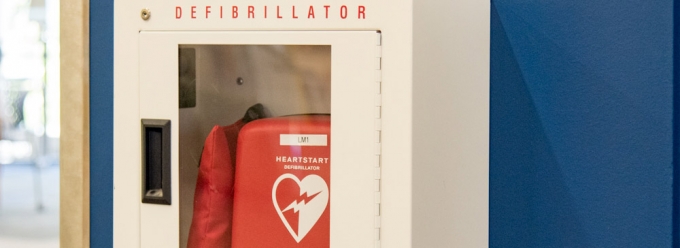Emergency Plans and Procedures
How Do I Report an Emergency?
Contact the Auraria Campus Police Department:
- Call 911 from a campus phone
- Call 303-556-5000 from a cell phone
- Text-a-Tip to 720-593-TIPS (8477)
Are You Ready? Emergency Procedures
Emergencies can range from severe weather, fire, or suspicious objects/people to a bomb threat or an active shooter. Check out our resources below on how to best react during different emergency situations.
Auraria Campus Emergency Procedures (English) »
Auraria Campus Emergency Procedures (Spanish) »
Helpful Resources
Stay in the know with helpful recources.
National Weather Service »
Follow on Twitter @NWSBoulder »
RTD Service Alerts »
Follow on Twitter @RideRTD »
Colorado Department of Transportation (CDOT) »
Denver International Airport »
Guidelines on Reporting Medical Emergencies
The Auraria Campus Emergency Preparedness, Coordination, & Recovery Committee, in partnership with the Health Center at Auraria, provide the following guidelines for health-related emergencies that occur on the Auraria Campus:
All faculty, staff, and students should immediately contact the Auraria Campus Police Department (ACPD) at the first sign of a medical emergency.
- From any campus landline, including classroom phones, dial 911
- From a cell phone, dial ACPD Dispatch: 303-556-5000 (dialing 911 from a cell phone will delay response times)
Trained dispatchers will evaluate the medical emergency and dispatch appropriate resources, which may include Denver Health Paramedics, the Denver Fire Department, and or Health Center at Auraria providers.
Some individuals experiencing a medical problem may request that the ACPD not be contacted and/or to not have an ambulance dispatched to the scene for their medical condition (e.g., for some seizure disorders.) However, this could have grave consequences for the individual experiencing a medical issue. It is advised that the ACPD is contacted immediately, regardless of such a request, and that trained personnel respond to the emergency.
When an ambulance arrives, any patient has the right to refuse a hospital transport, if they are deemed by the medical personnel on scene to be coherent to make personal medical decisions.
These guidelines are in place to protect all parties, as well as to ensure that the campus community remains safe during medical emergencies.
Automated External Defibrillator Program
Automated external defibrillators (AEDs) are in all major campus buildings as a safety measure for cardiac crisis events. These portable devices are located in easy-access points, primarily on the first floor of buildings. In buildings you frequent, please be aware of where you can find the closest AED. The AED will coach untrained responders on operating the device with voice commands. It checks for heart rhythm and will send an electric shock to restore the heart back to a normal rhythm if it is deemed necessary.
- Services & Departments
- Back
- Campus Planning & Development
- Classroom Support Services
- Early Learning Center
- Emergency Management
- Event Services
- Facilities Services
- ID Station
- Info Desk
- King Center
- Marketing & Campus Relations
- Mail Services (Distribution Services)
- Parking & Transportation Services
- Parking News and Updates
- Accessible Parking
- Register Your Vehicle
- Parking Citations (Payments & Appeals)
- Parking Garages, Lots & Options
- Parking Permits
- Passport Program
- Payment Methods
- Parking Rules & Regulations
- Parking Coupon Request
- Passenger Pick-Up and Drop-Off
- Public Transit (RTD) and Alternative Transportation
- Covered Bicycle Parking
- Shuttles & Motorist Assistance
- Student Job Opportunities
- Contact Us
- Police Department
- ACPD Annual Report
- Leadership & Command Structure
- Outreach and Events
- Bicycle Registration
- Clery Act
- K9 Program
- Co-responder Program
- Safety Tips
- Safety Videos and Resources
- Health & Safety Resources
- Submit a Crime Report
- Records Request Instructions
- Policy Manual
- Witness Forms
- ACPD is Hiring
- Request A Ride Along
- Complaints and Commendations
- Fingerprinting
- Contact Us
- Procurement Services
- Telecommunications
- Tivoli Student Union
- Tenant and Vendor Relations
